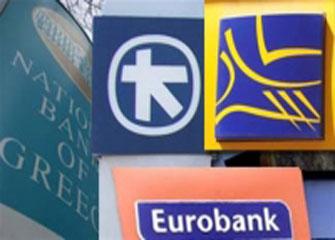By Turkish Weekly
There is considerable debate still about how the recapitalization should be structured, and how much capital the banks will need. Private investment is also expected to play a role, and there may be changes that affect shareholders in the banks.
“Recapitalization calls for an intricate solution,” commented Assistant Professor at Athens University of Economics and Business, Spyros Pagratis. “It has to balance the needs of shareholders and the Greek government.”
And it is critical to the recovery of the Greek economy, said Senior Equity Analyst with Alpha Finance Nikos Katsenos. “Greek banks must cease depending on the emergency liquidity assistance from the European Central Bank, however,” he added.
How much is needed?
In the week of Oct. 26, a bill providing funds for banking recapitalization must be submitted to the Greek parliament, once it has been approved by Greece’s institutional creditors — the International Monetary Fund, the European Central Bank, and the EU.
The Hellenic Financial Stability Fund (HFSF), a fund created in 2010 by European authorities to support Greek banks, the Greek Ministry of Finance, the central bank of Greece, the institutional creditors and the Greek banks themselves have been working on the terms of the third recapitalization that is expected to be completed by the end of this year.
So far Greek banks have received €28.6 billion ($31.7 billion) in recapitalization supported by the HFSF and private shareholders in 2013, and have received another €8.3 billion ($9.2 billion) from private shareholders the next year according to the Bank of Greece, the country’s central bank.
This year, a reserve of up to €25 billion ($27.7 billion) for the recapitalization of the Greek banks was included in the last bailout program agreed between the Greek government and its creditors in July.
But there is no agreement about how much recapitalization the banks will need.
“Our assessment is that we will not need all €25 billion provided in the bailout agreement to cover the capital needs of the banks,” Louka Katseli, chairman of the National Bank of Greece and the Greek Banking Association told the Handelsblatt newspaper on Tuesday.
Pagratis also believes that the banks will need less than €25 billion but explains the difficulties that lie ahead.
However, Alberto Gallo, head of macro credit research at Royal Bank of Scotland, was less certain. The banks must reconstitute capital reserves at the levels demanded by regulatory requirements, he told Bloomberg TV on Wednesday.
Non-performing loans
“The first parameter we need to consider is the non-performing mortgages, the cost of which is estimated at more than a €100 billion ($111 billion) for the Greek banks. Also, the institutional creditors expect that the outstanding debt to the Greek state, as well as private debt to the Greek state and other bad loans will be dealt with,” Pagratis said.
The problematic mortgages were the topic of the meeting Thursday between George Stathakis — Minister of Economy in the first Syriza cabinet — and Euclid Tsakalotos, the incumbent Minister of Finance, as well as the institutional creditors, although an agreement was not reached.
Then there is the issue of how private investors will participate, Pagratis pointed out. One solution would be for private investors to cover part of the required capital increase, with the rest covered by the Hellenic Financial Stability Fund.
One quandary both Katsenos and Pagratis indicated was that of preserving the value of the holdings of current shareholders in the banks. Recapitalization should not dilute the value of their shares.
Katsenos is nonetheless optimistic about the future of the Greek banks. “My personal assessment is that the recapitalization of the banks will succeed. It will gradually create a feeling of security for Greek depositors and facilitate the end of capital restrictions probably in the first semester of 2016.”
But success depends on a number of factors. First, proper management of non-performing loans must be achieved, Gallo pointed out.
Then, the support funding must be sufficient to improve capital ratios at the banks. It is not clear that the amount provided will achieve this, given that new international regulatory requirements are strict, he added.
And will Greek depositors return to put their money in banks? “Given the ongoing austerity, this will take time and it will also take political stability,” Katsenos adds.









